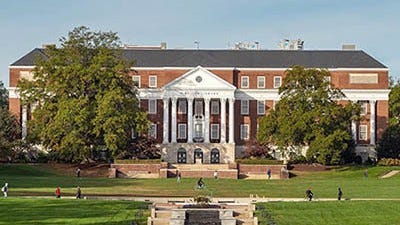
The University of Maryland Global Campus not only stands at the intersection of military veterans and their higher education goals.
UMGC President Dr. Gregory Fowler recently told CBS Eye on Veterans that the university is student-centric.
“This is really about us walking the walk with them, being part of their journey and trying to understand the world the way they see it,” he said. “That’s not necessarily the way higher education has always viewed itself.”
That sort of flexibility is especially important when serving the needs of military students who are pursuing a college degree, Fowler continued. UMGC has students working on degrees while serving on Forward Operating Bases to Antarctica.
“It’s critically important to understand their experience,” he said.
UMGC works with military students to find ways to document real-world experience and how that translates into academic credentials. It also offers employer-verified certifications in IT, human resources and cybersecurity to ensure “the currency they are looking for it what we have,” Fowler said.
The university uses what Fowler described as a “sherpa approach”
“That is, I can’t climb the mountain for you, but I’ve climbed this mountain before and I’ve seen some of the obstacles and my job is to climb it with you and get you to the top and over it,” he explained.
Fowler said that UMGC programs use AI technology to assist students where they need help the most. AI is also used to identify when real-life situations may be challenging students, allowing instructors to see student performance in real-time, allowing them to assist at a personal level.
“We can use machine learning to help support the teams and the students in getting things done, some of which may require a person directly, but a lot of what’s happening behind the scenes can happen if we build those tools right, raise the flags for students without hopefully making them feel they aren’t being successful,” he said.
Fowler likened the technology to a car’s GPS.
“A lot of these can be self-help tools, but there’s always going to be that human support there,” he stressed.
Fowler also discussed Black history and its connection with the university. US Marine veteran and UMGC graduate Edward Perkins became the first Black ambassador to apartheid South Africa in 1986.
“In this instance, Ambassador Perkins represented our ability to influence the world through our messaging,” he said. “He had a huge role to play in ensuring South Africans saw an ambassador of African American descent.”
UMGC was also recently designated a minority-serving institution, Fowler said.
To learn more about UMGC’s 125 degree programs, visit here.
Reach Julia LeDoux at julia@connectingvets.com.
Reach Phil Briggs at phil@connectingvets.com.
